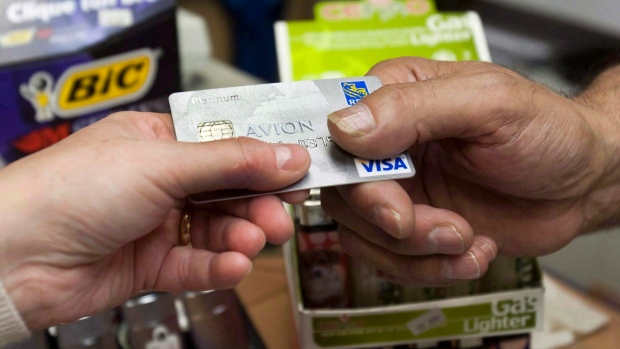Mar 15, 2017
Canadian consumer debt hits $1.72 trillion amid threat of ‘pain’ from rate creep

Canadians' insatiable appetite is back on full display
Total consumer debt rose six per cent to $1.718 trillion in the fourth quarter of 2016, according to an Equifax report released Wednesday.
Debt levels rose at the fastest pace in the country's housing hotbed. Torontonians, on average, had $20,857 of debt (excluding mortgages) in the quarter, marking a 4.7 per cent year-over-year rise. Debt levels in Vancouver rose 4.6 per cent on average to $24,487.
Equifax also noted "renewed appetite" for debt in Western Canada, with average levels rising in Alberta (+1.5 per cent) and Saskatchewan (+2.6 per cent) from the prior year.
"We used to say we don't need to worry about consumer debt in Canada because the Bank of Canada is going to be on hold for a very long time and interest rates aren't going to rise," said Frances Donald, senior economist at Manulife Asset Management, in an interview with BNN.
"But what we're seeing in the current environment is that we're actually importing higher interest rates from the United States ... So now we're sort of separating from the idea that we need the Bank of Canada to go to necessarily see some pain here."
A separate report from Statistics Canada on Wednesday shows the closely-watched credit market debt-to-disposable income ratio reached 167.25 per cent in the fourth quarter compared to 166.75 per cent in the third quarter. The latest data means households owed more than $1.67 for every dollar of disposable income in the quarter.
“The mortgage regulations introduced in Oct. 2016 are likely to keep debt growth in check and buffer the economy from a potential hard-landing in the Greater Toronto Area housing market,” wrote TD Economist Diana Petramala in a report to clients. “However, the risk is that continued low interest rates, and soaring prices lead first-time homebuyers to take on too much debt while existing homeowners increasingly draw on the equity that is rapidly accumulating in their homes."
Provincial Debt (Q4 2016, excluding mortgages):
Ontario, $21,948
Quebec, $18,618
Nova Scotia, $22,353
New Brunswick, $22,924
PEI, $22,184
Newfoundland, $23,523
Eastern Region, $22,780
Alberta, $27,989
Manitoba, $18,421
Saskatchewan, $24,566
British Columbia, $23,448
Western Region, $24,675
Canada, $22,113
Source: Equifax




